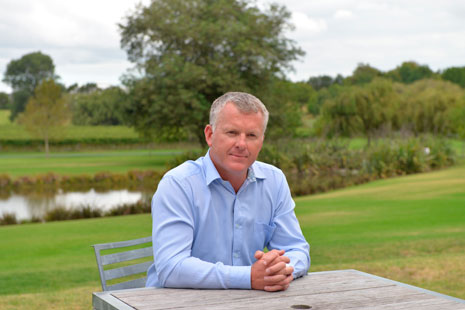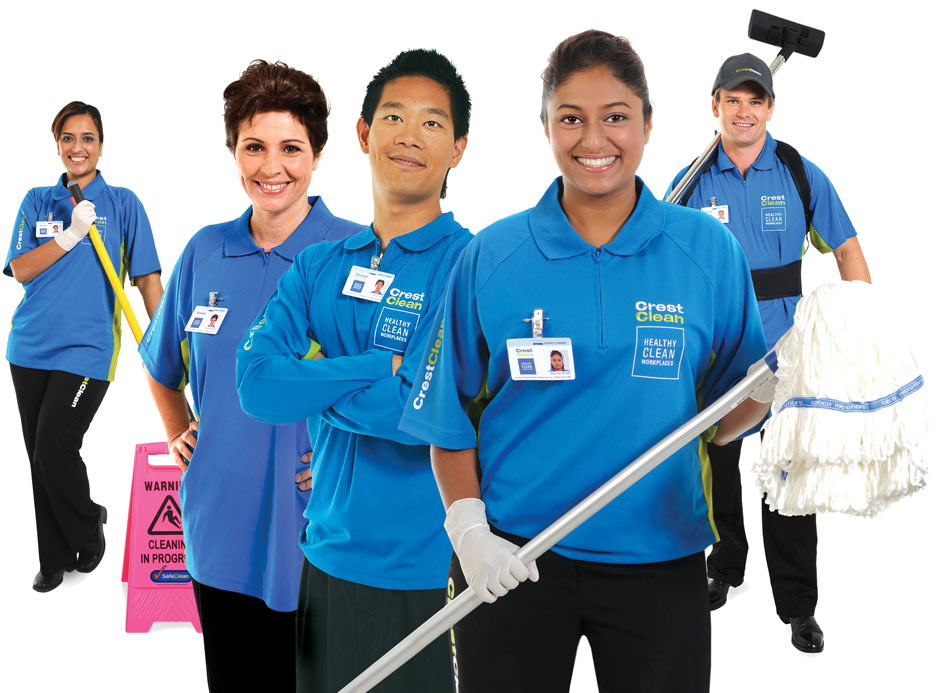Cleaning Industry Training Standards needed

CrestClean Managing Director Grant McLauchlan.
On a typical day, hundreds of thousands of New Zealanders enter their workplaces and get on with their jobs. Most don’t pay a second thought to the cleaners who came into the office as they headed out the door, aside from perhaps a passing hello.
No one really cares. It’s an industry that works during the night when most are at home. But people should care, even more so with the pending changes to the Health and Safety at Work Bill currently passing through New Zealand’s Parliament.
In short, the new health and safety legislation firmly places liability on people who directly, or indirectly, control the place of work, such as business owners and directors of companies.
In a few months managers and directors will need to understand the risks and hazards associated with the tasks they employ people to undertake. And this is where things get interesting, particularly when applied to the commercial cleaning industry.
Questions that procurement managers may have asked during the tendering process, for example, what chemicals are to be used on-site? How are they applied and stored? What skills and training do the cleaners coming into our office actually have? These now take on a new level of importance and responsibility.
Should an accident occur or some other incident befall the workplace, senior managers and directors will need to demonstrate that they have taken all practical steps for the safety of all people entering their workplaces. This includes staff, customers and contractors.
So why is this legislation actually important for New Zealand’s commercial cleaning industry?
Simply put, commercial cleaning companies will need to demonstrate that its cleaners entering another company’s premises don’t inadvertently increase the risk to the staff in that workplace.
And this is where training becomes a very serious issue and a potential competitive advantage for companies that recognise the importance of quality, relevant competency and skills-based training.
Figures just released by New Zealand Qualifications Authority (NZQA) show a shockingly low level of training being undertaken by people within New Zealand’s $1 billion commercial cleaning industry.
In 2014 only 219 people successfully gained an NZQA qualification suitable for undertaking a commercial cleaning job including following basic levels of infection control precautions.
Even when you add in the other 214 people that CrestClean put through the NZQA accredited program for commercial cleaners run by the Master Cleaners Training Institute in 2014, the combined number of 433 cleaners represents a tiny fraction of the total number of workers in the industry.
With over 30,000 people identified by the Ministry of Business, Innovation and Employment as commercial cleaners in New Zealand, and in an industry that suffers from a very high staff turnover rate, a client or customer wondering whether the cleaner working in their office actually knows what they’re doing suddenly becomes an even more relevant question. And it needs to be asked.
Most responsible commercial cleaning companies do provide their cleaners with basic training that enables them to undertake basic cleaning tasks.
But the very real question is whether that is enough? Particularly as legislative changes affecting workplaces are imminent and include provisions for penalties and prosecutions for managers and business owners who don’t play by the new rules.
This means that if something goes wrong in the workplace as a result of poor hygiene or cleaning practices, managers and the directors of the companies may be held responsible.
Suddenly the laissez-faire attitude towards a business’ cleaning arrangements will no longer be sufficiently good enough to deter possible prosecution.
While commercial cleaning companies that provide good training practices for their cleaners reduce risks to business, the questions worth asking is how would our clients or customers actually know if there was a level of training consistency across the cleaning industry?
On this point, people would be hard pressed to name any other industry sector with an annual spend of $1 billion that does not have any minimum standards. With new legislation pending, the time is certainly right for the introduction of Cleaning Industry Training Standards (CITS).
A CITS would ensure that next time our customers are sitting at their desks, or going about their work day, they (and senior management) would at the very least have a degree of confidence that the cleaner who came in over night has the basic skills to prevent employees, customers and contractors from getting sick, or worse, falling victim to a workplace accident.


